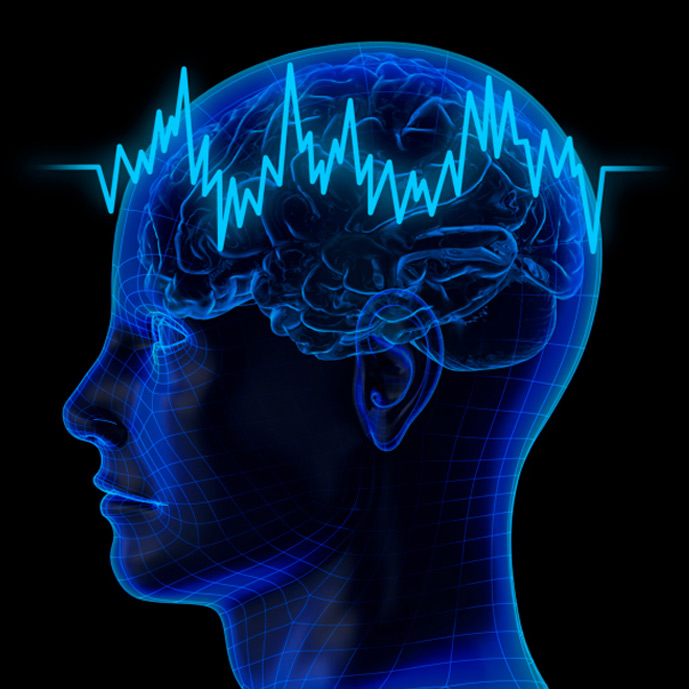Serenity: The Value of Emotional Detachment for Bipolar Disorder
My life with bipolar disorder has certainly become better in the last ten years or so. The first few times I was asked why that was, I didn’t really have a very good answer. However, in retrospect, I think what has really improved my ability to live with bipolar disorder is developing emotional detachment. By this, I don’t mean that I don’t feel emotions. I have a mood disorder, so I couldn’t stop them if I wanted to. What I mean is that, along the way, I stopped thinking of my emotions as real. Once I stopped thinking of my emotions as being insights into the world, I was able to become a lot healthier. In this blog post, I will discuss how that process came about, and why it has been beneficial.
My Second Onset
My early experience of bipolar disorder was probably not atypical. In my 20s, my bipolar disorder pretty much controlled me. Basically, if I had a particular emotional state, that’s how I thought the world really was. So, if I was anxious, someone was really out to get me, if I was depressed, the world was really awful, and if I was hypomanic, the world was really a wonderful place whose beauty I could immediately intuit.However, in my mid-20s I had what I have come to call my second onset. I had a major bout of depression, followed by a manic episode. The immediate results of this were catastrophic. I left my doctoral program half-way through the depressive phase and wasn’t able to return for a full year after the manic episode. All told, I left school for sixteen months, and I wouldn’t say I returned to my pre-second-onset functioning until I was almost 30.
Dispelling the Emotional Illusion
Nonetheless, having these two severe episodes back-to-back had a long-term positive effect for me. The emotional states during my second onset were so severe that I was immediately aware of just how pathological they were, even while I was having them. In some cases, it was true that I was wrapped up in whatever emotional state I happened to be in, but most of the time, it was evident that something was seriously wrong.
In effect, I saw through the illusion that my emotions had set up for me. Perhaps because I had such an early onset of bipolar disorder (I was 17 when I had my first episode), I had never really been a euthymic adult. As a result, I’d never had an experience of what it might have been like to have a normal emotional life, and I just couldn’t see what was wrong with my emotional states. This second onset changed all of that, and it dispelled the illusion that my emotions had cast over me.
Immediate Effects of My Second Onset
Following this second onset, I was never quite able to look at my emotional states the same way again. Straightforwardly, they had ceased to seem real. For the next little while, I would say that I tried to be completely dissociated from them. I started reading more and more of the Stoics, a group of philosophers who saw happiness and virtue as being purely rational.A part of their view was that our emotional states result from (or rather, just are) certain beliefs, so my goal was to gain long-term control over my emotional states by assessing situations rationally. However bizarre it might sound, when I heard John Nash say in A Beautiful Mind that he was going to think his way out of schizophrenia, that made perfect sense to me. I didn’t know it at the time, but I was stumbling onto cognitive therapy through the same original sources from which Aaron T. Beck had derived it.
Disappointment With Cognitive Therapy

Public Domain
The limits of cognitive therapy, however, could really be seen with my hypomania. With the exception of the persecution fantasies that I sometimes develop, as far as I can tell, cognitive therapy didn’t really do anything for my hypomania. If anything, my elevated fantasies are a welcome release from the sheer agitation that underlies them when the fantasy is stripped away.
What I realized is that there really is just something wrong with my brain, not simply my ideas. Bipolar episodes are not simply triggered by hot thoughts, but by something like breaks in circadian rhythms, stress or adrenaline (or some combination of the three). As a result, I realized that I would need to do more than simply change my thought processes. I would need to target my emotions directly.
Nonetheless, that basic orientation to look to my reason first and my emotions only second remained. I started to think of myself as being strapped to some annoying lion who would be trying to carry me along, and I started making comments like, “Listening to your emotions is like taking advice from your cat.” I still believe that today. The main difference is that I no longer think that I can reason with a cat.
Applying My Detachment to Life
The numerous ways in which emotional detachment has helped my life will each require a post in themselves, but I can summarize them here. In each of these cases, putting my reason ahead of my emotion was the key factor in what has become steady improvement over the last decade:
- Relationships: Rather than seeing other people as being there to support or hear my emotional states, I started to focus on developing friendships with people who had shared interests and values, so that we could work together on shared projects.
- Realistic Goals: I tried to develop realistic plans about my future, not focusing on what seemed most exciting to me or the most interesting, but thinking more about my own abilities and what I might actually accomplish given my condition. I have spoken about this subject somewhat in a previous post about ambition.
- Recognizing Triggers: This is something I’ve really been focusing on in the last couple of years. I am looking at what triggers my bipolar episodes, especially my manic and hypomanic episodes. Being able to sit back and look at what precluded an episode requires that I be able to look objectively at what actually occurred.
- Getting Help: I started to think about what kind of care I needed for my bipolar disorder and how to get that help. I sit down to realistically evaluate what is helping, what isn’t and what areas I can improve.
On top of all of these ways, being emotionally detached allows me to simply live in a different “headspace”, as it were. In the Nicomachean Ethics, Aristotle claims that our reason is “most ourselves.” I didn’t used to believe that, but now I do. When I have emotions, I am not immediately carried away by them. Rather, I live at a kind of distance from that part of myself, and that distance provides me with a kind of serenity that has made the last ten years so much better.












Once again an amazing blog.
You’ve developed some amazing coping strategies and insight.
Andrea
I have been married for 17 years to a man who is distant and unaffectionate by nature. He told me the other day that he was so burned out on me that he felt nothing for me anymore. He hasn’t touched me in 3 months. I had a 4 year affair due to my hypersexuality. I see disaster coming. He won’t even talk to me. I have no human contact. If it weren’t for my dogs I’d go crazy. Please help!
Hi Debbie,
I’m sorry you’re having so much trouble in your marriage. You might consider getting some relationship counseling, and also bringing your husband to some of your own therapy sessions. It can really help with the relationship, and also can help a spouse better understand what is happening.
Wonderful Blog!
Thank you, Debbie :).
Great entry! I found that your experience had many parallels with my own disease progression and development of methods for dealing with it. I had mild episodes as a child and a couple of serious suicide attempts as a teen, but never received psychiatric treatment. I coped as best I could but much of it was destructive and I lived at the mercy of my moods. I also never knew what euthymic life looked like, and it wasn’t until a depressive episode progressed to the point where I was completely non-functional that I realized that what I was experiencing was pathological. I found detachment from emotions to be very beneficial, but the way I found my way there was through extensive mindfulness practices and their associated writings, mostly yoga.
I didn’t really realize until the last year just how significant it was that I’d never been a psychologically healthy adult. Now I realize just how much not having perspective and having such an early onset are connected.
Thanks for the link. I used to find some meditation practices/teachings nihilistic and sometimes drove myself into a tizzy with it. (Reading the Bhagavad Gita during a mixed state was a very bad idea.) But I think some practices appear nihilistic on the surface but really aren’t when they’re experienced. I find it hard to articulate, but here’s a translation of one of the Upanishads that describes how I feel about it.
The Isa Upanishad – First Verse
All is perfect, so perfectly perfect!
Whatever being lives, moves
And breathes on Earth
At every level from atom
To galaxy is absolutely perfect in its place
Precise and choreographed,
Because “That” flows from the Glory of God,
The Lord,
The Self,
Consciousness,
The Source,
Awareness, Peace and Love,
And is therefore perfect.
When you have surrendered your ego
To “That”
You will find true happiness.
Never ever envy the place of
Any other man or woman.
A freeverse transcreation by Alan Jacobs from his book The Principal Upanishads published in 2003 by O Books.
(I have the book, but found this here: http://mysticpoets.us/allpoems.html)
Thank you for the translation, Liz. A lot of our experiences can be hard to articulate, but I’m glad you have found some serenity.
Thanks! And I am likewise glad that you have.
This is the 1st time I have seen this type of perception mentioned before – well done! (I have to admit that the phrase “emotional detachment” has other connotations for me, but I get the gist via your content.)
I personally have done well in achieving a much improved balance with my Bipolar since adopting a “reality checking” demeanour. I have surrounded myself with like-minded, straight-up, down-to-earth individuals whom I trust and respect to act as a plumb-line for my perceptions. From time to time, I ask them to provide me honest feedback. I give my partner a “right-of-way” to inform when I am off track and unwell. It’s a 2-way street though – my friends welcome the same “checking” from me. Trust is a HUGE factor in the success of this.
I believe my “emotions are real”… they are not always real for everyone around me! (Emotions ARE subjective of course). Having said that, I think I usually have better self-insight than most folk now. I have simply rigorously dedicated myself to the habit of understanding that everybodys reality is always different. The difference between people can be minor, or massive (like when I am manic or depressed for instance).
I have heard people on a mushroom trip asking the question “wow, what is actually real, man?”… It’s a very healthy question.
I have found the downside to adopting this attitude is that sometimes I unnecesarrily question myself – especially when experiencing a bout of poor self-esteeem. And occasionally, I have ill-chosen a “trusted person”. Some Alpha-sociopaths will tend to take advantage!
Thanks for the article Dan. Rhi
PS: I don’t know what kinda CBT you are getting over there, but I’ve had huge (otherwise unacheivable) growth experiences at the hands of qualified therapists in Australia. Albeit… one oft has to go through many useless ones to find the great ones (not easy to do when you are unwell). Excellent long-term therapy, additional to appropriate medication, has been an essential hallmark in my gaining a happy life. I can say I am actually bloody happy!!
Thank you so much for the comment, Rhi. It’s a very good reminder that other people can really help us in the “reality checking” process. I know I have a tendency to try to handle things on my own.
I developed bi-polar illness due to the removal of a benign tumor in my right frontal lobe. Within a week after my surgery, I was seriously depressed to the point of an attempted suicide… and two followup attempts within 6 months. I was admitted to the psych ward at the best hospital in the city of Winnipeg, Canada. After 3 weeks of them trying me on numerous medications they tried Lithium on me. I responded like a flash in a thunderstorm. The resident doctor in training who was watching my case closely went to the head Dr. of the psych unit and said “I think he has bi-polar illness. Let’s treat him accordingly.” They also put me on Tegretol (a mood stabilizer). I was a new man after that. They put me in touch with a great psychiatrist who also worked with the neurologist who had performed my surgery. They balanced my medication so that my psych meds didn’t interfere with my epilepsy medication. As it turns out, Tegretol is also an anti-convulsant.
The only problem that I have continually dealt with is my mania. I love to stay up until 3 or 4 in the morning doing research on the computer & visiting web forums. Forums like this one are a big help to my recovery. What I think I’ll have to do is eliminate coffee from my diet. Caffeine & mania don’t go well together. It’s going to be a tough one to give up.
I am also trying to quit smoking. I belong to a forum for that as well. I am also on the patch & am on Champix (Chantix in the U.S.). I’m down to about 9 or 10 smokes a day… down from the pack & a half habit I had before. I am making progress.
I’ll be checking this forum fairly regularly since I’m on disability and not working… I have a lot of free time to myself. Hope to hear any positive feedback. God bless!
Congratulations on your progress, Mike! I hadn’t heard of brain surgery causing bipolar disorder before, but it makes a lot of sense. I think you’re probably right about caffeine, but I’m still in a state of denial about that one :).
I had been coping all my life with periods of depression and periods of what felt like high stress. I would complete alot of tasks, join organizations, and usually end of running them. I had trouble staying in a job but would generally get another. I saw therapists and gained some insight into specific situations. I started taking antidepressants shortly after my father died and took a small dose off and on for 10 years.
The long and the short of it is. I had a similar coping mechanism through those years without medications as the writer above. Emotional detachement. A psychiatrist met me and thought I was unnecessarily on antidepressants. I just couldn’t accept being sad now and again. Ok, maybe.
Menapause, many mistakes and a number of hard decisions and the admission in a circutous manner from the psychiatrist that he may have misunderstood my problems. I am trying to regain some emotional detachment. It is certainly the efforts of the psychiatrist to do this. It is extremely difficult to do after your mind and body have experienced the full blown turmoil of depression and mania.
Thank you for the thoughtful comment, Barbara. Since I wrote this, I’ve been trying to allow some more emotions back into my life, but it’s definitely been a struggle.
I also apologize for the late response. Your comment got buried in a spam attack from several months ago.
Hi, you have probably seen me around on the various sites, I think this post is good, I also found that if I let go on the feeling or forced myself to think basically (up the kyber with it) I could manage, however I have been like this since I was a little girl. My first thoughts of suicide were at approx 6 years old. I only managed to keep some sort of handle on things due to the intellect that I have which constantly questions and explores many avenues. I then take what I think is relevant to me and try to use it. I have to stay away from parents very much and also various people as triggers are not great. I come from a line of bipolar people past and present. My sister is 13 years younger and like me, my daughter is just in her 20’s and looking very similar, my son has autistic spectrum which is linked also. I take part in studies, genetic and psychological which hopefully will give people a better stance on the fact that we are just like this. I could have spent my whole life worrying and being unproductive. That is a waste of life as long as I live it though. So much time so little to do……….strike that, reverse it. Just need to find what is right for each individual as soon as possible so they can start living a life instead of not! This post is a good place to start.
🙂